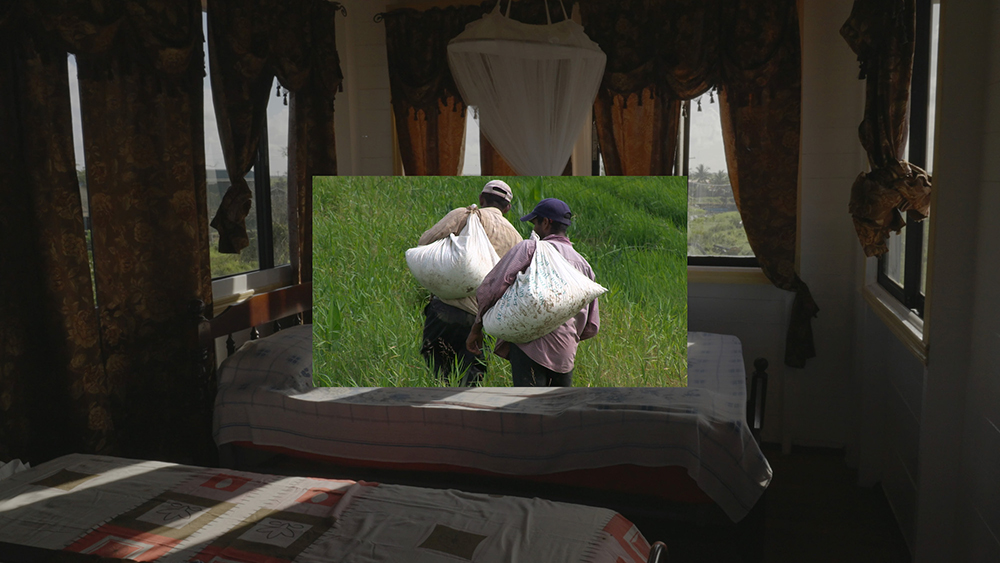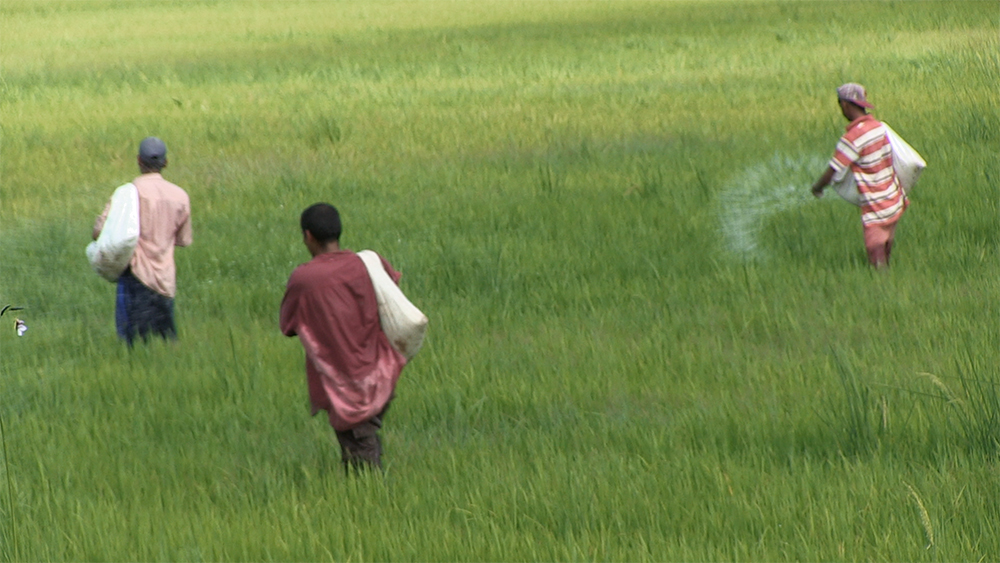Two men are talking in a car, as low green fields stream past the windows. “This used to all be fruit trees but the new owner tore them up,” says the driver. “And he planted rice?” the other man incredulously asks. The first man doesn’t answer but shakes his head in disgust. “Do you think rice is a symbol?” asks the other, then lets out a burst of nervous laughter at his own question before it can be answered.
The passenger is Vishal Jugdeo, whose latest project, a series of videos titled “Caribbean Television,” proposes to explore the legacy of colonialism in Guyana. Jugdeo’s family history acts as the source material. In the work’s first episode, Deo’s Moon (2023), at Commonwealth and Council, his interlocutor is the titular Deo, Jugdeo’s real-life uncle. Roguish, handsome, and a little down on his luck, Deo makes for a compelling guide to the ancestral seat his nephew left long ago.

Vishal Jugdeo, still from Deo’s Moon, 2023.
The episode unfolds through two overlapping conversations. One is between Jugdeo and his uncle as they drive around Guyana during the day, sightseeing and talking about the country’s troubled history—“The queen, bless her soul, brought the troops here and destroyed Guyana,” Deo says at one point, with tranquil irony, “and we never recovered.” In the evenings their conversations are looser, lubricated by alcohol. The second strain of conversation, between Jugdeo and his two cousins, Shalini and Dharani, is mostly conducted over a Zoom screen, although their discussion—about being the three queer cousins in the family, and about the colonial heritage of the Indo-Guyanese, whose ancestors were brought into South America as indentured laborers—also overlays Jugdeo’s single-channel footage, most of which looks like it was shot on an iPhone. When his camera is not trained on his uncle, Jugdeo tends to hold the frame still, letting construction equipment, farm workers and relatives pass in and out of it, creating a window rather than a replication; these shots appear, additionally, to be taken most often through a car windshield. Guyana appears through layers of glass.
Big-hearted and ambitious, Jugdeo’s piece nevertheless feels a little heavy-handed at times. The effort to relocate the family drama with the drama of history is a noble one, but Jugdeo too often seems satisfied to offer some critical terminology in the video chat and call it a day. A little less Zoom analysis between the three cousins would have gone a long way, especially since Jugdeo and his uncle’s conversations are laden with enough awkwardness, affection and alienation for the audience to interpret on their own. Do we really need a lecture on how queer histories “resist the archive?” By contrast, one of the most memorable shots in Deo’s Moon is of a farmer bathing in a rice paddy, grinning and splashing water down his naked back, before he notices Jugdeo filming him. The artist drops his camera, and the smiling bather dissolves in a green cloud as the camera spirals towards the earth.


